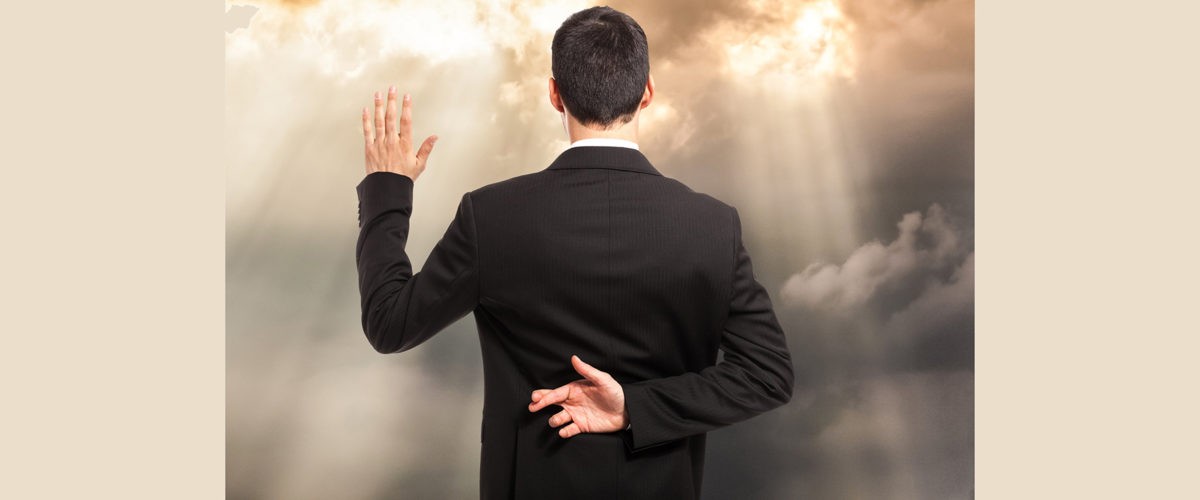Too many American Christians act as if our nation has somehow earned God’s approval through our inherent virtue. Instead, I believe the largest way America has reflected Christianity is in how we have been completely dependent upon the grace (unmerited favor) of God.
The proliferation of racial injustice — which has plagued us from before our founding and continues today with insufficient acknowledgement, accountability, apology and atonement — is just one manifestation of the ways we have missed the mark in how we treat people, which is God’s stated standard of whose we are.

Sid Smith III
God commands us in Matthew 22:39 to love others as we love ourselves, one of the two great commandments upon which Jesus says the entire law hangs. I am convinced that God truly loves each and every one of God’s children more than we can fathom. If God values each and every one of us to such a magnitude, then we need to promote such a love, particularly in the body of Christ.
Jesus is so serious about this standard of love that he tells us in Matthew 25:40 that the way we treat “the least of these” is the way we treat him, and he identifies this caliber of love as the defining characteristic of his sheep. When we fail to love people, or when we discriminate against certain people using dishonest scales of injustice, we first and foremost offend God.
Here’s an example from a familiar story in the Bible. In 2 Samuel 11-12 when King David committed his adulterous affair and resulting murder, it is reasonable to presume that this man (whom God identifies as “a man after God’s own heart”) rationalized his clearly sinful behavior by focusing on its effects toward Bathsheba and Uriah. It wasn’t until David’s friend helped him to refocus his attention on the principle of justice that he was able to finally admit that “against thee, and thee only, have I sinned.”
To be clear, David’s sins were not about racism; they were about adultery, murder, abuse of power. But David had a clearly apparent blind spot to his own behavior which not only negatively impacted his life but also had disastrous consequences for the kingdom that God gave him stewardship over — and he couldn’t see the reality of his sins until his friend loved him enough to confront him with God’s perspective on justice.
“America, allow me to introduce myself. My name is Nathan.”
America, allow me to introduce myself. My name is Nathan.
As David testifies in Psalm 51, when we fail to love people, we offend God first and foremost. When, for instance, our nation that we love so much establishes itself by declaring that “we hold these truths to be self-evident, that all men are created equal, that they are endowed by their Creator with certain unalienable rights, that among these are Life, Liberty and the pursuit of Happiness” while constitutionally enslaving Black people for our first century and constitutionally discriminating through Jim Crow white supremacy for our next century, we have offended God first and foremost.
That’s what concerns me the most. I only bring the experiences of Black people up because, like Nathan with David, it may help some folks to be able and willing to understand and identify with the human dynamic of suffering.
Another place where Jesus taught the imperative of justice is in Luke 19:1-10. Upon being noticed and acknowledged by the blessing of Jesus’ presence and salvation, Zacchaeus expressed willingness to part with his (presumably) ill-gotten gains and repay, or recompense, or reparate those he had exploited four times back as much. Because he understood the magnitude of salvation, Zacchaeus acknowledged both the nature of his acquisition of wealth and the damage that his exploitation has inflicted to the very people God loves so much and identifies with.
This attitude of repentance reflects a heart stance that stands in great contrast to the nine out of 10 lepers who expressed no gratitude to Jesus for his healing in Luke 17:11-19. In Luke 18:9-14, Jesus contrasts the attitude of the Pharisees, who felt justified in their own eyes, versus the tax collector, whose corruption and exploitation caused him to repent with weeping. Which one was truly justified in God’s sight?
Jesus goes on in Luke 18:18-30 to describe how difficult it is for those whose value is in their wealth to obtain a true kingdom perspective, as represented by the rich young ruler. I don’t think Jesus is saying that wealth in and of itself is bad, but it is clear that the love of money makes it a great challenge to love God first, which begins our relational obedience to our Lord.
“If America wants to claim any sort of God-blessed status, we all need to reckon with the ugly reality of our past and present racism.”
If America wants to claim any sort of God-blessed status, we all need to reckon with the ugly reality of our past and present racism. Those of us who know the significance of an encounter with God and the resulting relationship have a defining obligation to demonstrate a heart stance similar to what Jesus found in Zacchaeus.
Getting distracted by logistical details, or by the innocence of individual white persons, or by insulting assessments of the collective worthiness of Black people or lack thereof — all that makes us like the nine lepers, the Pharisees, and the rich young ruler, all of whom enjoyed limited aspects of Jesus without a transformed heart.
If we truly want the healing that our land so desperately needs, we are told that we, God’s people who are called by God’s name, should humble ourselves and pray, seek God’s face, and turn from our wicked ways.
Does America owe a debt to our racial injustices? Undeniably. To Black people? Not so much. To God? Absolutely! Those of us who know Christ should insist that we pay it, for God’s sake.
Sid Smith III is a music ministry consultant and serves at Third Baptist Church of San Francisco. His father, Sid Smith Jr., was a pioneer Southern Baptist Convention leader credited with starting more than 400 predominantly Black SBC churches.
Related articles:
‘We are Cain’: Owning up to the reality of racism in America | Opinion by Robert P. Jones
If you think racial equity exists in America today, you’re in the minority
Racists don’t get to define racism | Opinion by Jakob Topper


